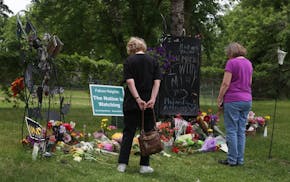Bowing to demands from Minneapolis and southwest suburbs for more details on the cost and construction of a future light-rail line, the head of the agency overseeing the project agreed Wednesday to delay critical decisions until she can find answers.
"I understand there is a sentiment to take a little more time," said Metropolitan Council Chair Susan Haigh, calling that message "loud and clear."
But she stressed that key decisions on the Southwest LRT must be made this fall to stay on track for state funding.
Meanwhile, Hennepin County Commissioner Peter McLaughlin cautioned that a group of metro counties that fund transit projects is worried that the rising costs of the Southwest project will deprive other regional transit projects of funding.
McLaughlin said some metro officials bristle at the possibility of building a tunnel for the LRT in the Kenilworth corridor of Minneapolis, which could increase costs by $420 million, considering it "a distortion of regional priorities."
"Something will have to be postponed or fall off the chart if the cost of this goes up as dramatically as projected," he said.
The Met Council had planned to accept recommendations on options for LRT and freight train routes next week from metro mayors and counties officials and then decide Aug. 28. But on Wednesday, officials of Minneapolis, Minnetonka, Edina and St. Louis Park raised more questions.
Haigh said Wednesday that engineers will need at least two more weeks to answer questions from local officials, likely pushing a decision by the agency into at least September.
Plans for tunnels or rerouting freight trains bring the cost of the project from an estimated $1.25 billion to between $1.58 billion and $1.82 billion. Haigh said she hoped to hold the price closer to $1.5 billion.
'Hurry slowly'
The delay in proceeding with the Southwest LRT follows a letter on Tuesday from Minneapolis Mayor R.T. Rybak to Haigh outlining his concerns about the tunnel options.
Rybak sought assurances that a tunnel wouldn't harm two nearby lakes or prevent the LRT from connecting to a future streetcar line. He also wanted assurances that a tunnel, if embraced by the city, wouldn't be rejected later in favor of a less attractive but less expensive alternative.
At a meeting of metro officials Wednesday, Rybak transportation aide Peter Wagenius asked Haigh and Met Council staffers, "How long will it take to get complete answers to these questions?"
Met Council engineer Jim Alexander replied that it would take until early September, prompting suburban officials to seek more time on a variety of issues.
"We're at a point where we have to hurry slowly," said Bill James, representing St. Louis Park, who voiced concerns about plans to acquire homes to make way for freight.
Meeting shows divide
Wednesday's meeting underscored local divides over the project. When Edina Mayor Jim Hovland questioned why the light-rail line, freight trains and recreational trails couldn't run above ground and next to one another in the Kenilworth corridor, Wagenius replied, "That is not at all remotely on the table."
Minneapolis had earlier agreed to support a Southwest LRT through the Kenilworth corridor, an area popular with bikers and hikers, but only on condition that current freight traffic in that corridor be moved. Hennepin County planned the light-rail route through Kenilworth assuming the freight trains would be moved to tracks in St. Louis Park.
Residents there balked at relocating the trains near their homes, and a railroad complained that the route was unsafe. The Met Council then took over the project and offered new routes with berms that satisfied the railroad but would cost roughly $200 million to build.
Many St. Louis Park residents remain opposed. Some Minneapolis residents said they'd keep the freight traffic in their neighborhood if the LRT were hidden in a tunnel rather than run above ground alongside the freight and recreational trails.
McLaughlin said Wednesday that the planners should reconsider the original plan for routing the freight in St. Louis Park and try to negotiate a deal with the railroad.
"It sure as heck would be less than $400 million," he said.
Patrick Doyle • 612-673-4504
Police arrest man suspected of invading St. Paul home, raping and robbing woman

Jury selected for Feeding Our Future trial after unusually long process due to publicity of massive fraud case
Man gets more than 21 years for part in fatal crash during rolling shootout in downtown Minneapolis

Former MnDOT official approved as Minneapolis public works director

